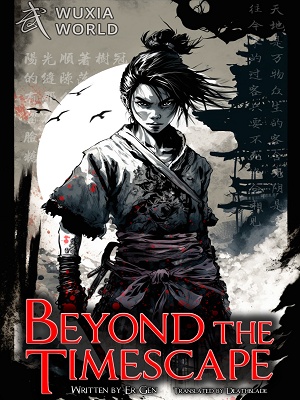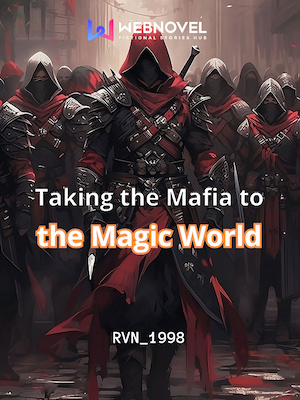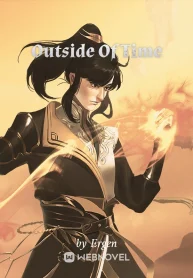Chapter 51:
Chapter 51
“Japan is a member of the Tripartite Pact, but we are keeping our distance from the war in Europe. The military expansion ambitions of the German Empire are beyond our understanding, and we cannot help but mourn for the Americans who died.
The Tripartite Pact stipulates that we will jointly declare war if one of us is attacked first, but this is a preemptive war by Germany against the United States, so our Japanese Foreign Ministry and government have interpreted that Japan has no obligation to declare war on the United States.”
Nomura Kichisaburo, the Japanese ambassador to the United States, was very polite and humble in front of Hull, the U.S. Secretary of State, who came to see him after declaring war on Germany. What does he mean by mourning?
Hull was puzzled by the vague translation of the interpreter, but he nodded anyway, assuming it was an expression of regret.
The United States had imposed an oil and steel embargo on Japan, along with Britain, China, and the Netherlands, to stop Japan’s imperial ambitions in China.
Now, before entering the war with Germany, he had a meeting with the Japanese ambassador to settle the Pacific front, and Japan seemed to have no ill will towards the United States, unlike what he had expected.
“Thank you for expressing your regret, Ambassador. However, the U.S. government cannot tolerate Japan’s invasion of mainland China, setting up a puppet government called Manchukuo, and disrupting the peace in East Asia.
Also, I would like to ask if Japan has any intention of formally withdrawing from the Tripartite Pact if it has no intention of going to war with the United States.”
“Excuse me? What did you just say...”
Kichisaburo’s eyes widened.
The Japanese interpreter slowly repeated the translation and Hull repeated his proposal at the ambassador’s request.
Withdrawal from the Tripartite Pact, dismantling of Manchukuo, and cessation of illegal and forcible occupation of China’s legitimate territory.
Hull knew the Japanese habit of not showing their emotions well. But Ambassador Kichisaburo seemed quite... shaken.
His eyes were trembling, his lips were tightly bitten, and he was enduring humiliation.
Hull could confidently say that he had never seen a Japanese act like this before.
But what could he do?
Eighty percent of Japan’s oil came from the United States.
After the oil embargo, Japan had been eyeing oil from the Dutch colonies in Indonesia, taking advantage of the fact that the Netherlands had been occupied by Germany, a member of the Tripartite Pact, but Japan had no room for that.
It was hard enough to fight against Chiang Kai-shek’s China, which was waging a desperate resistance.
How could they go all the way down to Southeast Asia and fight a war?N0v3lRealm was the platform where this chapter was initially revealed on N0v3l.B1n.
Britain and the Netherlands were too busy with their homeland being invaded, and China had virtually no navy.
The main force would be the U.S. Pacific Fleet, but Japan lacked the ability to go to Australia and New Zealand and fight a war.
In short? What would they do if things got tough?
Kichisaburo seemed to be suppressing his anger.
He calmly drank his tea in front of him and conveyed Japan’s demands.
And now it was Hull’s turn to be angry.
“What do you mean by asking us to withdraw from the Philippines! That is an American territory in Southeast Asia that our troops shed blood to occupy, and we have no intention of giving up an inch of territory for Japan. Ambassador Kichisaburo.”
The ambassador’s expression was calm.
As if he had expected it.
Hull closed his mouth again, feeling embarrassed by his own excitement.
Well, if they wanted to bet, they could do that. But Japan’s proposal was beyond common sense.
They pressured China to surrender, demanded that we give up the Philippines, lifted the oil and steel embargo and ‘economic cooperation’ – meaning economic aid to Japan – and even recognized Manchukuo.
They seemed to think that just as they had thrown away Germany as an ally like a devoted lover, America would also abandon China.
Germany had weighed China and Japan for its influence in Asia and chose Japan, withdrawing its diplomatic mission from China.
Japan seemed confident that it was a much better choice.
But America had no intention of giving up China.
To begin with, could they betray an ally once again?
The Japanese Empire had acquired a population of 200 million by occupying Manchuria, larger than that of America.
Manchuria’s development was still poor, so it would take a long time for Japan to match America’s production level. But if Manchukuo achieved dazzling growth through economic development and Japan swallowed up mainland China as well?
By then Japan would be a formidable enemy.
Now they could stop Japan with just an oil embargo.
The main purpose of Japan’s proposal was probably to lift the oil and steel embargo.
Some sneered at the president’s words.
It was like lending them gum instead of a hose, and they didn’t want to get that gum back anyway – following Republican Senator Robert Taft’s rebuttal.
“Can we just ignore their preemptive attack? What about expanding the size of the army?”
“Yes, Mr. Secretary. We have started discussions on sending U.S. troops to ground operations in agreement with Britain and Russia. However, in the case of the Soviet front, it is extremely difficult to maintain our own supply after sending allied ground forces. In the case of Britain... I don’t know how long they can hold on with the German landing...”
This was the result of hesitating. Roosevelt wanted to shout that.
Marshall occasionally stroked his bushy mustache and told him what he needed to expand the army rapidly, and he felt suffocated as he watched the members of the State Council pick on everything.
The means for America to intervene in the other side of the Atlantic had disappeared.
What would they do when even Britain and Portugal, the last ones left, sank into the sea of the Axis? Who would they go to Europe with?
Would they land in Portugal, which maintained a semblance of neutrality, pass through Spain, cross the Pyrenees, pass through Vichy France, cross the Alps, occupy Italy, cross the Ardennes and the Rhine, and capture Berlin in Germany?
‘Damn, that’s too far.’
Most would ask why they had to intervene in Europe in the first place.
Anyway, the means for America to project its influence on the European continent had almost disappeared.
Roosevelt knew well that this loss of possibility would have a serious impact on America’s future.
We could also become an island.
“If we have to prepare for war so much, how about reducing our support for Russia?”
“Mr. Secretary, that is absolutely unacceptable.”
Marshall argued that Russia should be actively supported.
As a soldier and a bureaucrat, he only dealt with facts, and rarely expressed political opinions, but now it was hard to tell whether he was representing Roosevelt’s opinion or his own.
If they cut off support for Russia, the Russians would die more and kill less.
And as much as they killed less, they would come to the Atlantic.
“We can produce as much material as we want, but we can’t make young Americans in factories!”
It was a very orthodox statement, but some were not very happy because the target was Russia.
As Marshall’s turn ended with suspicious glances at his inclination and the navy’s turn came, the navy requested permission to change from the existing plan.
Now that the Panama Canal was gone, there was no need to consider the Panamax standard – the width limit of warships that could pass through the Panama Canal – for a while.
The Pacific would be put aside for now, and since most of the production facilities were concentrated on the east coast of America and the Atlantic coast, they should make use of them as much as possible and commission more new battleships of Montana class!
“Under the existing Two-Ocean Navy Act, we received permission from Congress to build five new battleships of Montana class, 70,000 tons full load displacement, which exceeded the Panamax standard. However... We are still numerically inferior to Crixmarine’s battleship fleet and this could cause problems in commerce raiding. We need to expand the Montana class battleship plan.”
The Two-Ocean Navy Act had eight Essex-class carriers, two Iowa-class battleships, five Montana-class battleships and six heavy cruisers as well as numerous warships and aircraft production as its backbone.
Among them, they asked to increase the limit of five Montana-class battleships.
“How many... No, I’d better ask the Treasury Department about that. We can’t assign all five of them to the Atlantic Fleet alone and we have to allocate at least some to the Pacific. Two more 70,000-ton battleships? Hmm... We’re already building five carriers right now. How can we do that?”
The naval officer just groveled.
He had to get this project somehow at this opportunity when the Atlantic Fleet could expand its size enormously.
Especially from his point of view, battleships were much more important than carriers where pilots from the navy air force who made him lose his appetite were installed.
Carriers?
Weren’t those what Britain rolled around and went down with their battleships in naval battles?
They also contributed to the disaster of Taranto.
He thought it would be better to invest in army air force that contributed to victory by launching medium bombers from land at Gibraltar.
As huge budgets were being tossed around, Marshall felt uneasy somehow.
Would Japan really stay still?
Molotov said so.
Japan would definitely start a war against America.
And within this year! Marshall trusted Molotov’s claim quite a bit.
He might not have been able to detect a surprise attack due to the lack of intelligence on what Germany would do, but that was inevitable.
He was afraid of Japan’s silence.







